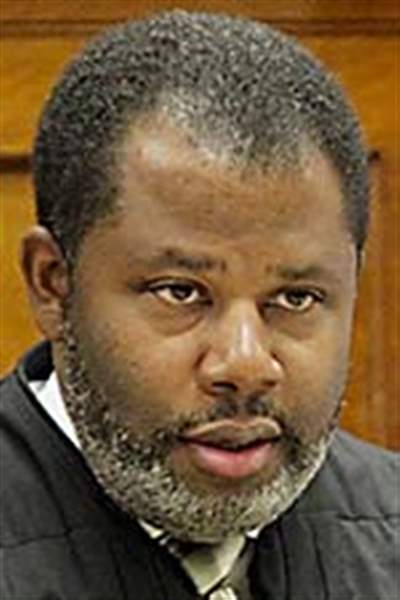
Judge keeps Toledo abortion clinic open
Capital Care appeal granted 24 hours before scheduled closing
8/12/2014
Duhart
THE BLADE
Buy This Image

Exterior photo of the Capital Care Network abortion clinic.
Capital Care Network, Toledo’s only remaining abortion clinic, will continue to operate while the owner appeals an order from the Ohio Department of Health to shut down.
Judge Myron Duhart, of Lucas County Common Pleas Court, granted an emergency motion Monday, just 24 hours before the clinic had been ordered to close its surgical center by Lance Himes, interim director of the state health agency.
In the court ruling Judge Duhart said, “it appears to the court that an unusual hardship to the appellant [Capital Care] will result from the execution of the appellee’s [ODH] order pending determination of the appeal.”
“I am so relieved for the northwest portion of Ohio that the clinic can stay open because access will continue for women,” said Terrie Hubbard, owner of Capital Care.

Duhart
Court documents filed by Ms. Hubbard’s attorney stated that the West Toledo clinic provides pregnancy termination services for thousands of women from Ohio, Michigan, Indiana, and West Virginia each year. If the state forces Capital Care to close its doors, women in the Toledo area would have to cross the border to Michigan or travel hours away to Cleveland or Columbus, the attorney argued.
Mike Gonidakis, president of Ohio Right to Life, said he is disappointed in the court’s temporary ruling but he is confident that the Ohio health department will eventually win the appeal.
“It’s rather unfortunate the court will allow this clinic to remain open. The law is very clear here about what is required for this facility to stay open and they don’t meet those standards. The judge is putting aside what’s best for women's health,” Mr. Gonidakis said.
However, Terry Lodge, attorney for Capital Care, said the law is anything but clear. The crux of the issue before Judge Duhart, he said, concerns a provision of the Ohio law that calls for all surgical centers to have a transfer agreement with a “local” hospital in case of emergency.
The health department revoked Capital Care’s license because it does not hold a valid emergency-care agreement with a local hospital, as required by a state budget passed last year. Lawmakers, however, did not define what “local” meant.
After the University of Toledo Medical Center, the former Medical College of Ohio, chose not to renew its agreement with Capital Care as of July 31, 2013, the clinic struggled for months to find a new hospital partner before entering into an agreement in January with the University of Michigan Health System in Ann Arbor, which is more than 50 miles away.
The Ohio General Assembly never defined what “local” means and neither did the Ohio Department of Health, said Mr. Lodge. It was only after Ms. Hubbard signed the agreement with the Michigan hospital that the state health department defined local as 30 miles or less, he said.
Mr. Lodge said Judge Duhart could choose to settle the issue by defining the parameters of “local” or he could rule that the entire law is unconstitutional because it is too vague.
A third possible outcome is that the judge could also rule against the constitutionality of the law because Ohio lawmakers included the provision in the budget bill rather than voting on the transfer agreement law as a separate provision, Mr. Lodge said.
“I’m not a legal expert but I am hopeful, based on other decisions that have come from other courts across the country, that they [Capital Care] will prevail, said Jaime Miracle, policy director for NARAL Pro-Choice Ohio.
Ms. Miracle was referring to a case in Alabama where a federal court last week struck down as unconstitutional a law that required that doctors at abortion clinics have admitting privileges at local hospitals.
“I think the argument will come out in court a that a transfer agreement is a political tactic to shut down abortion providers. They have no bearing on the care of patients,” Ms. Miracle said.
Mr. Gonidakis said, however, that Ohio’s transfer agreement law will stand up to scrutiny because the federal courts have already litigated the constitutionality of transfer agreements. “It’s an open and shut case,” he said.
The first hearing date for the appeal before Judge Duhart is set for 10 a.m. on Sept. 4.
Staff writer Jennifer Feehan contributed to this report.
Contact Marlene Harris-Taylor at mtaylor@theblade.com or 419-724-6091.